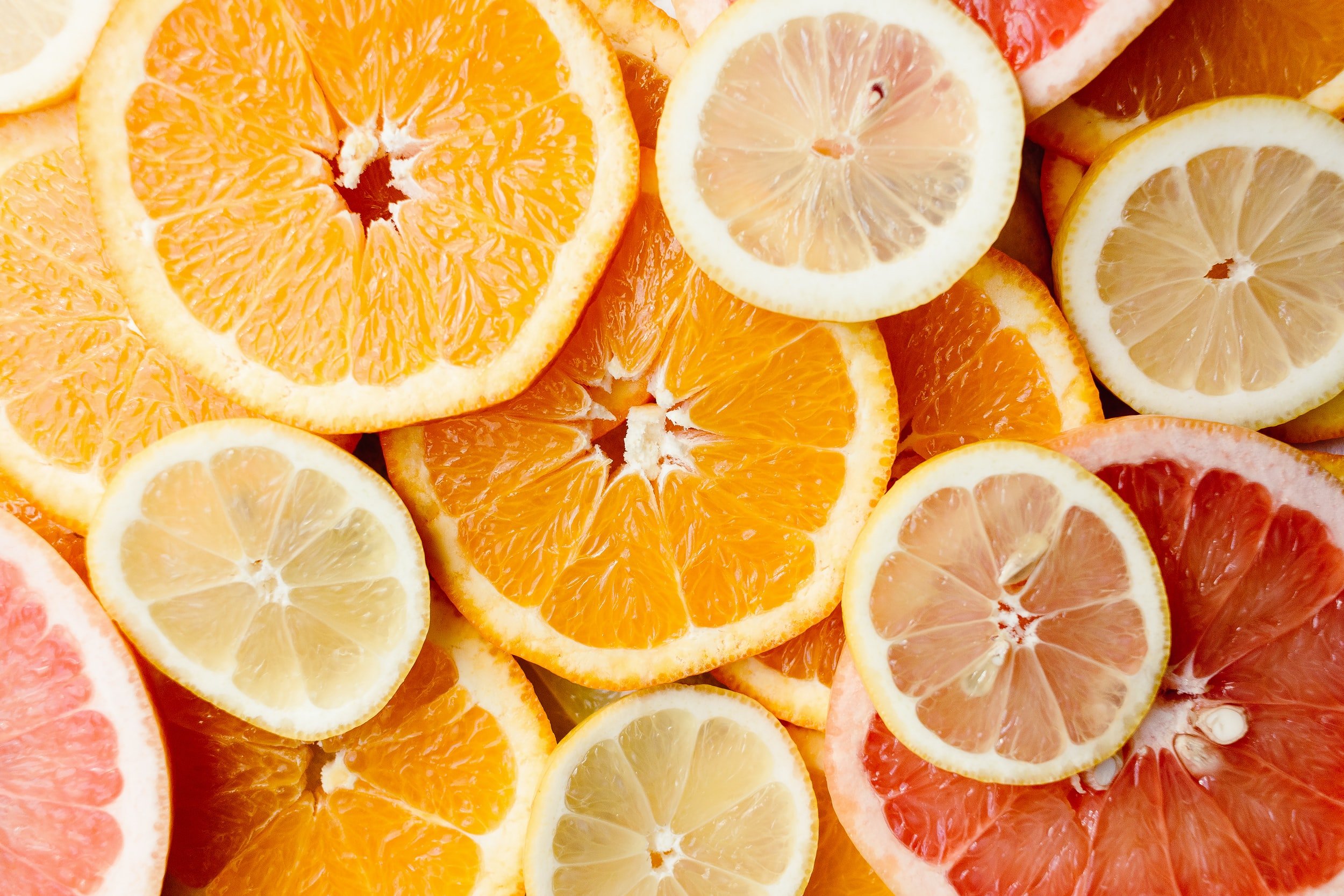Vitamin C
Vitamin C is a water-soluble vitamin that is essential to human health.

Vitamin C
-
Vitamin C, also known as ascorbic acid, is a water-soluble vitamin that is naturally present in food. Most animals can synthesize vitamin C, but humans cannot. Vitamin C is typically found in supplements as ascorbic acid, which has the same bioavailability as foods.
-
Vitamin C is a powerful antioxidant essential in protecting cells from oxidative damage from free radicals. Additionally, it assists in vitamin E recycling, allowing vitamin E to continue working as an antioxidant. Vitamin C is also involved in protein metabolism and the biosynthesis of collagen, certain neurotransmitters, and L-carnitine.
-
90 mg/day is recommended for adult males and 75 mg/day for adult females. Requirements increase to 85 mg/day during pregnancy and 120 mg/day during lactation. Individuals who smoke should increase vitamin C intake by 35 mg/day. Some examples of approximate vitamin C content in food include 1/2 cup sauteed green pepper (102 mg), 1 cup strawberries (89 mg), 1 cup orange sections (87), and 1/2 cup kiwi (84 mg).

Vitamin C
-
Is a powerful antioxidant
Vitamin C is a powerful antioxidant that protects cells from the damaging effects of free radicals and reactive oxygen species (ROS). Free radicals combine with oxygen and create ROS. Free radicals occur both endogenously and exogenously. Endogenous free radicals are a product of energy metabolism, and exogenous free radicals are environmental exposure to pollution, cigarette smoke, and ultraviolet radiation from sunlight.
-
Is essential for wound healing and immune function
Vitamin C is necessary for collagen synthesis, an essential component of connective tissue, and is required for proper wound healing and immune function.
-
Improves iron absorption
Consuming vitamin C with non-heme iron-containing foods increases iron absorption.
Increase Your Vitamin C Intake
-
Eat red and green peppers
Red peppers are one of the best sources of vitamin C. Green peppers are also a good source.
-
Eat fruit
Oranges and grapefruits are excellent sources of vitamin C. Strawberries, kiwis, and cantaloupe are also rich in vitamin C.
-
Eat vegetables
Broccoli, brussels sprouts, cabbage, and cauliflower are great sources of vitamin C.